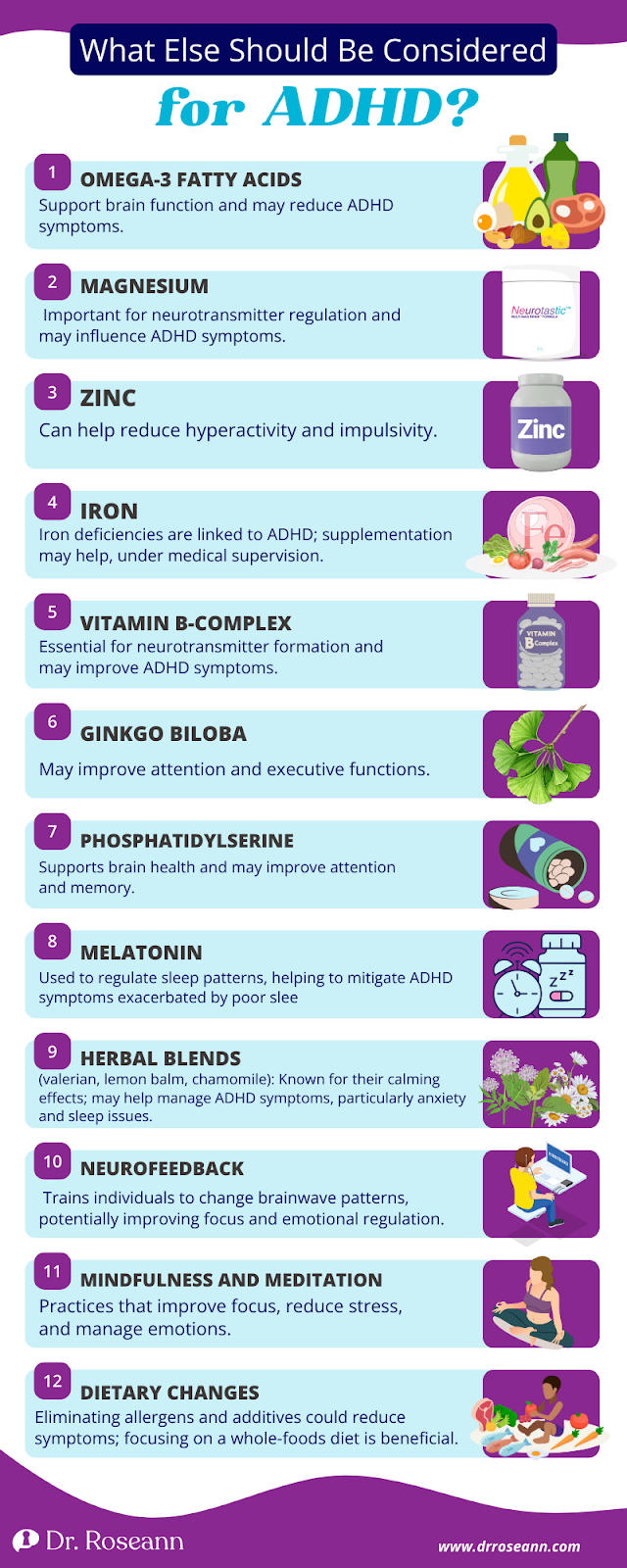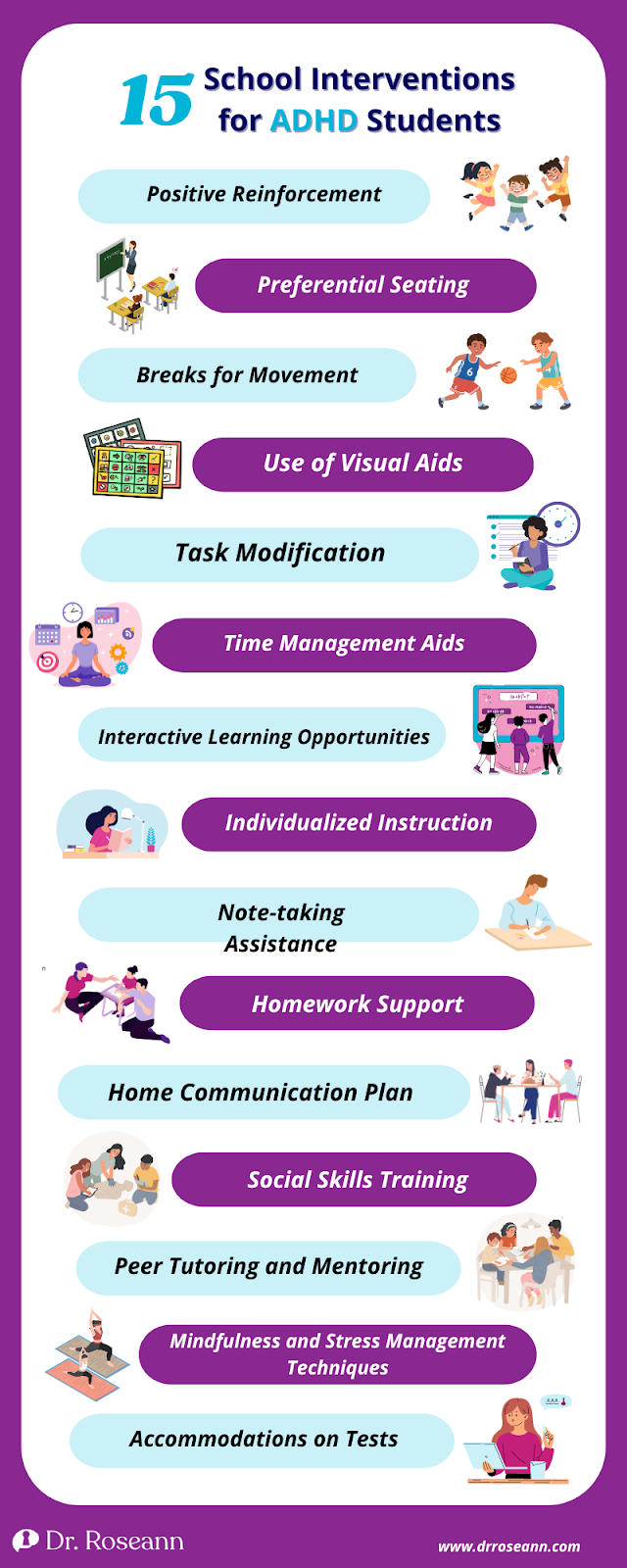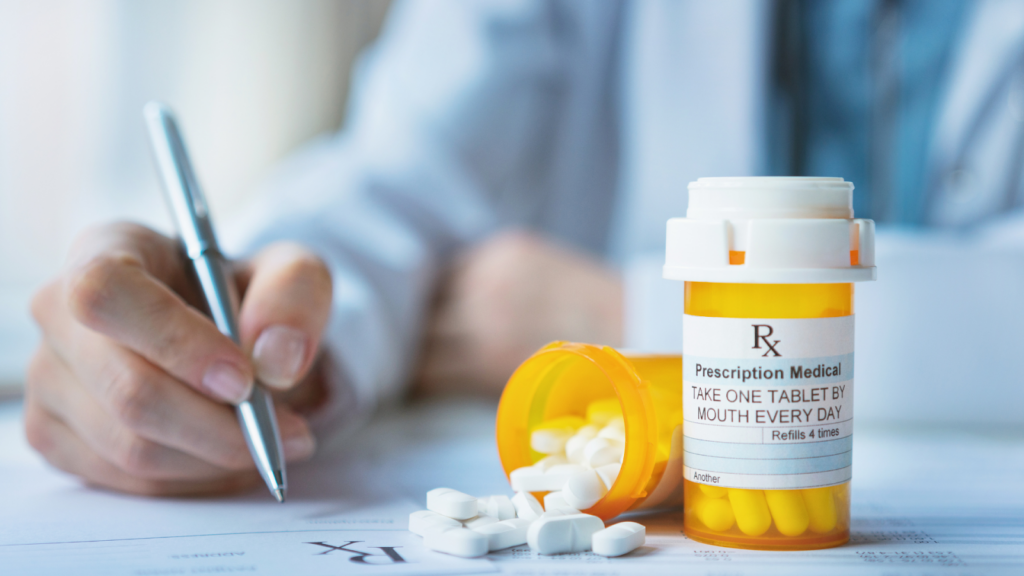Attention Deficit Hyperactivity Disorder (ADHD) is a topic of much worry in today's busy world. As more and more people are diagnosed with ADHD and are prescribed medication, it has become clear that managing this condition involves more than just taking pills.
As a neurodevelopmental disorder, ADHD is characterized by symptoms of inattention, impulsivity, and hyperactivity. It affects millions of children worldwide, leading to concerns about academic performance, social interactions, and overall well-being.
While medication can be a part of managing ADHD symptoms for some, there's growing concern over the overprescription of these medications. After so many years in clinical psychology, I’ve seen so many children suffer the hidden dangers of ADHD medications. Whether in my one-to-one program or using my Focus Formula Kit, that’s why I encourage parents to consider alternative approaches.
Are ADHD Medications Overprescribed?
In recent years, there has been a notable surge in the diagnosis and treatment of Attention Deficit Hyperactivity Disorder (ADHD) in children across the United States. The Centers for Disease Control and Prevention (CDC) reports that as of 2016, approximately 6.1 million children in the U.S. have been diagnosed with ADHD, reflecting a significant increase compared to previous years (Danielson et al., 2018).
This rise in ADHD diagnoses has corresponded with a parallel increase in the prescription of stimulant medications, such as Ritalin, Adderall, and Concerta. While these medications can help in managing ADHD symptoms, they come with potential risks and side effects that merit careful consideration. Stimulant medications can lead to issues such as insomnia, decreased appetite, and even more severe concerns like increased heart rate and blood pressure.
Moreover, the uptick in medication prescriptions raises questions about the accuracy of ADHD diagnoses and the potential for overprescription. Critics argue that factors such as societal pressure for academic success, limited access to behavioral interventions, and the influence of pharmaceutical marketing may contribute to the overreliance on medication as a primary treatment for ADHD.
What Else Should Be Considered for ADHD?
It's essential to recognize that not all children exhibiting symptoms of inattention, impulsivity, or hyperactivity necessarily have ADHD. Other underlying factors, such as anxiety, learning disabilities, or environmental stressors, can manifest similarly and require different treatment approaches. A thorough evaluation by healthcare professionals is crucial to accurately diagnose and address the root causes of attention-related issues in children.
In light of these concerns, there has been growing interest in exploring alternative approaches to ADHD management. Parents and caregivers are increasingly seeking out holistic treatments, behavioral interventions, and lifestyle modifications to complement or even replace traditional medication-based therapies. These alternative approaches may include dietary changes, exercise regimens, mindfulness practices, and various forms of treatment tailored to the child's needs.
While medication can be a valuable tool in managing ADHD symptoms, it should not be the sole or automatic solution. There can be dangerous side effects.
A comprehensive approach that considers the child's unique circumstances addresses underlying factors, and incorporates a range of interventions is essential for promoting optimal outcomes and long-term well-being.

Is Ritalin Overprescribed?
The question of whether Ritalin is overprescribed has garnered significant attention in recent years. Ritalin, a widely recognized stimulant medication, is often hailed for its effectiveness in managing the symptoms of ADHD in many individuals. However, its widespread use has also raised red flags, prompting scrutiny among the medical community and concerned parents and caregivers.
Numerous studies and reports have shed light on the potential for Ritalin to be prescribed excessively or hastily without thorough consideration of alternative treatments or comprehensive diagnostic evaluations (Chan et al., 2012).
Some argue that in some cases, Ritalin may be prescribed as a quick-fix solution to address behavioral challenges in children without delving into the underlying factors contributing to their symptoms.
One of the primary concerns surrounding the overprescription of Ritalin is the potential for misdiagnosis or the failure to consider alternative explanations for a child's behavior. ADHD shares symptom overlap with other conditions such as anxiety disorders, learning disabilities, or even environmental factors like trauma or stress.
Without a thorough evaluation by qualified healthcare professionals, there's a risk of misattributing symptoms solely to ADHD and overlooking other underlying issues that may require different treatment approaches.
Furthermore, the pressure to achieve academic success and conform to societal norms of behavior can inadvertently contribute to the overprescription of Ritalin. In some cases, parents and educators may seek a quick solution to address behavioral challenges in children, turning to medication as a convenient option without fully exploring alternative interventions or considering the potential long-term effects.
Critics of Ritalin overprescription advocate for a more cautious and comprehensive approach to ADHD management. They emphasize the importance of conducting thorough diagnostic evaluations, including psychological assessments, behavioral observations, and discussions with parents and teachers.
Additionally, they stress the need to explore alternative treatments, such as behavioral therapy, educational interventions, and lifestyle modifications, before resorting to medication as a primary treatment option.

Why It's Important to Look at Root Causes Before Using Stimulants for ADHD
Not all attention problems stem from ADHD. This is what I established with my 30 years of experience. That’s why it’s important to explore root causes. Many children exhibit attention difficulties due to various factors such as anxiety, learning disabilities, or even nutritional imbalances. Simply prescribing medication without addressing these underlying issues can be detrimental.
I advocate for a holistic approach to ADHD management, which includes exploring natural remedies and lifestyle adjustments. Addressing factors like diet, sleep patterns, and environmental influences helps manage ADHD symptoms effectively.
Natural remedies for ADHD encompass a broad spectrum of approaches, ranging from dietary changes to herbal supplements. For parents navigating the complexities of ADHD management, adopting a holistic approach can offer valuable insights and alternatives.
Comprehensive evaluations, individualized treatment plans, and ongoing support are needed. Each child is unique, and their ADHD management should reflect that. By considering natural remedies, addressing underlying issues, and fostering a supportive environment, parents can empower their children to thrive.
While ADHD medications can play a beneficial role in managing symptoms, their overprescription warrants careful consideration. Parents of children with ADHD should explore holistic approaches, including natural remedies, to ensure comprehensive and personalized care.
If you want to know more about ADHD and how to manage it naturally, start with my Natural ADHD Formula Kit. This Parent Kit will teach you how to boost your child’s attention, focus, and school performance without using stimulants for ADHD.
What does ADHD medication do?
ADHD medication, such as methylphenidate like Ritalin, works by increasing the levels of certain neurotransmitters in the brain, specifically dopamine and norepinephrine. This helps to improve focus, attention, and impulse control in individuals with ADHD.
Why do stimulants calm ADHD?
Stimulants paradoxically calm individuals with ADHD by increasing the levels of neurotransmitters like dopamine and norepinephrine in the brain. These neurotransmitters play a crucial role in regulating attention, focus, and impulse control in those with ADHD. Stimulants help to improve these cognitive functions and lead to a reduction in hyperactivity and impulsivity as well as an improvement in attention and focus.
How does Adderall affect someone without ADHD?
Adderall, like other stimulant medications, can increase alertness, attention, and energy levels in individuals without ADHD. It can also enhance cognitive functions, such as memory and concentration. However, its use without a medical need can lead to potential side effects and risks, including increased heart rate, blood pressure, and the potential for dependence or addiction.
How does Adderall affect someone without ADHD?
Adderall, like other stimulant ADHD medications, can increase alertness, attention, and energy levels in individuals without ADHD. It can also enhance cognitive functions, such as memory and concentration. However, its use without a medical need can lead to potential side effects and risks, including increased heart rate, blood pressure, and the potential for dependence or addiction.
Can you take ADHD and anxiety meds at the same time?
Yes, it's possible to take ADHD and anxiety medications together, but some healthcare professionals may advise against it. It's crucial to consult with your doctor to ensure safe and effective treatment.
Can ADHD meds cause psychosis?
While rare, stimulant medications used to treat ADHD can, in some cases, lead to psychosis, especially in individuals predisposed to psychotic disorders.
How much does ADHD medication cost?
The cost of these pills for ADHD varies depending on factors like the specific medication prescribed, dosage, and insurance coverage. Generally, it can range from affordable generics to more expensive brand-name options.
Can untreated ADHD cause headaches?
Untreated ADHD may contribute to headaches in some individuals due to difficulties with attention, focus, and impulse control, which can lead to stress and tension.
Is ADD medication addictive?
While medications like ADHD stimulants are not typically considered addictive when used as prescribed, they can be habit-forming if misused or abused.
What happens when someone without ADHD takes Adderall?
When someone without ADHD takes Adderall, they may experience heightened focus, energy, and euphoria. However, misuse of Adderall can lead to serious health risks and potential addiction.
Are ADHD pills addictive?
ADHD medications are not inherently addictive when used as prescribed, but they can be misused or abused, leading to dependency in some cases.
Why are ADHD meds hard to get?
ADHD medications may be perceived as complicated to get due to factors such as concerns about overprescription, the stigma surrounding mental health conditions, and regulatory measures to prevent misuse and diversion.
Is Adderall overprescribed?
The question of whether Adderall is overprescribed is a subject of debate. While it's commonly prescribed for ADHD and narcolepsy, concerns exist about its misuse and overuse, particularly among individuals without a legitimate medical need.
Citations
Chan, J. Y. C., Dennis, T. A., & MacLeod, M. A. (2012). The Over-prescription of Ritalin for Suspected Cases of ADHD. Ruor.uottawa.ca. http://hdl.handle.net/10393/34386
Danielson, M. L., Bitsko, R. H., Ghandour, R. M., Holbrook, J. R., Kogan, M. D., & Blumberg, S. J. (2018). Prevalence of Parent-Reported ADHD Diagnosis and Associated Treatment Among U.S. Children and Adolescents, 2016. Journal of Clinical Child & Adolescent Psychology, 47(2), 199–212. https://doi.org/10.1080/15374416.2017.1417860
Dr. Roseann is a mental health expert in ADHD who is frequently in the media:
- She Knows 11 Products Moms of Kids With ADHD Swear By to Maintain Order in the Chaos
- The Healthy 12 Silent Signs of Adult ADHD You Might Be Ignoring
- Helping Children Thrive Podcast Benefits of Neurofeedback for children with ADHD
Always remember… “Calm Brain, Happy Family™”
Disclaimer: This article is not intended to give health advice and it is recommended to consult with a physician before beginning any new wellness regime. *The effectiveness of diagnosis and treatment vary by patient and condition. Dr. Roseann Capanna-Hodge, LLC does not guarantee certain results.
Are you looking for SOLUTIONS for your struggling child or teen?
Dr. Roseann and her team are all about science-backed solutions, so you are in the right place!
Is it ADHD or something else? Take our ADHD Quiz and find out why your kid can’t focus, listen, or complete tasks
Dr. Roseann is a Children’s Mental Health Expert and Licensed Therapist who has been featured in/on hundreds of media outlets including The Mel Robbins Show, CBS, NBC, PIX11 NYC, Today, FORBES, CNN, The New York Times, The Washington Post, Business Insider, Women’s Day, Healthline, CNET, Parade Magazine and PARENTS. FORBES called her, “A thought leader in children’s mental health.”

She coined the terms, “Re-entry panic syndrome” and “eco-anxiety” and is a frequent contributor to media on mental health.
Dr. Roseann Capanna-Hodge has three decades of experience in working with children, teens and their families with attention-deficit hyperactivity disorder (ADHD), autism, concussion, dyslexia and learning disability, anxiety, Obsessive Compulsive Disorder (OCD), depression and mood disorder, Lyme Disease, and PANS/PANDAS using science-backed natural mental health solutions such as supplements, magnesium, nutrition, QEEG Brain maps, neurofeedback, PEMF, psychotherapy and other non-medication approaches.
She is the author of three bestselling books, It’s Gonna Be OK!: Proven Ways to Improve Your Child's Mental Health, The Teletherapy Toolkit, and Brain Under Attack. Dr. Roseann is known for offering a message of hope through science-endorsed methods that promote a calm brain.
Her trademarked BrainBehaviorResetⓇ Program and It’s Gonna be OK!Ⓡ Podcast has been a cornerstone for thousands of parents facing mental health, behavioral or neurodevelopmental challenges.
She is the founder and director of The Global Institute of Children’s Mental Health, Neurotastic™Brain Formulas and Dr. Roseann Capanna-Hodge, LLC. Dr. Roseann is a Board Certified Neurofeedback (BCN) Practitioner, a Board Member of the Northeast Region Biofeedback Society (NRBS), Certified Integrative Mental Health Professional (CIMHP) and an Amen Clinic Certified Brain Health Coach. She is also a member of The International Lyme Disease and Associated Disease Society (ILADS), The American Psychological Association (APA), Anxiety and Depression Association of America (ADAA) National Association of School Psychologists (NASP), International OCD Foundation (IOCDF).
© Roseann-Capanna-Hodge, LLC 2024











